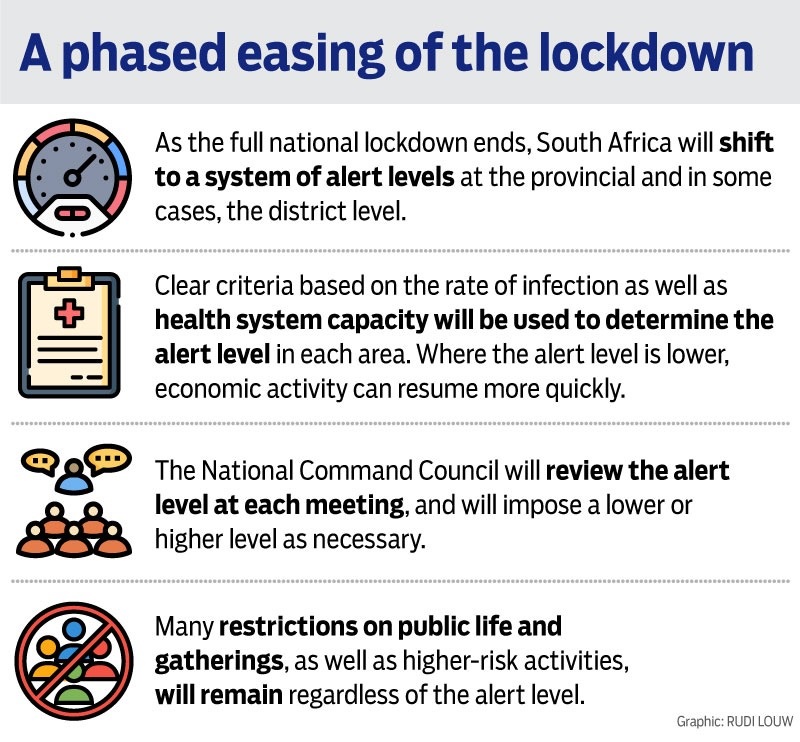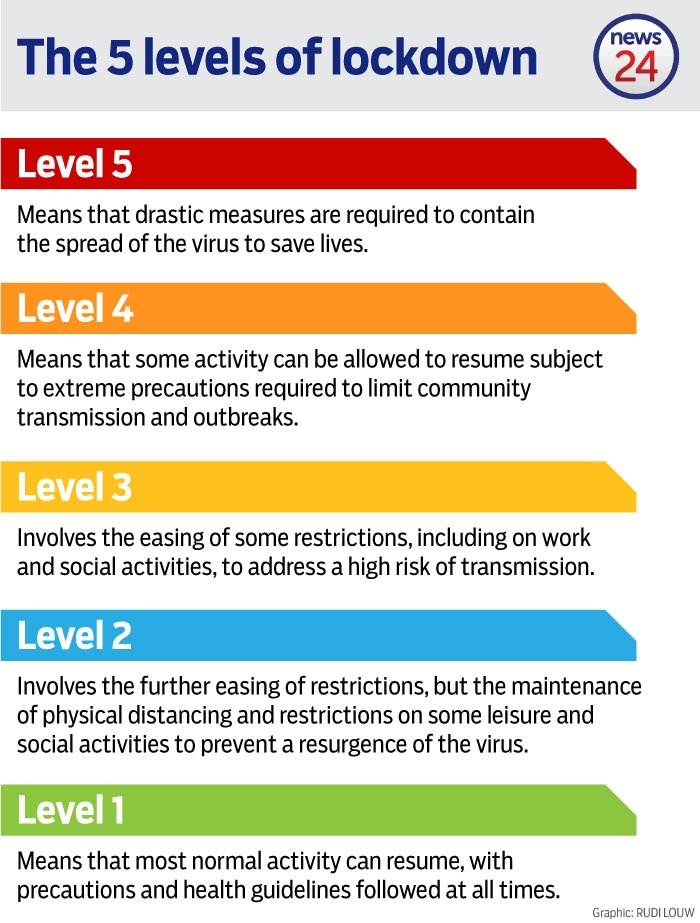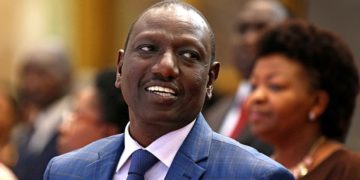[ad_1]
While the SA National Defence Force (SANDF) will continue to support the police in enforcing Disaster Management Act regulations, as the country enters a new phase of the lockdown, soldiers will be providing assistance in other essential areas, including health care.
After 27 days of a hard lockdown, President Cyril Ramaphosa announced a new level on Thursday evening, allowing for the gradual easing of restrictions from 1 May.
Ramaphosa also clarified the mobilisation of more than 70 000 soldiers, one of South Africa’s biggest deployments in history.
“As we slowly ease the lockdown restrictions, we are substantially and rapidly increasing our public health response.”
Ramaphosa said these responses included the increase in community screening and testing, an additional allocation of R20 billion for health response and the deployment of the SANDF to help with various parts of the Covid-19 response effort.
READ | Ramaphosa mobilises SANDF in one of the country’s biggest deployments in history
“Until now, those defence force members, who have been deployed, have supported the South African Police Service in their responsibilities.
“They will continue to do so, but they will also be providing assistance in other essential areas, such as the provision of water supply, infrastructure maintenance and health services.
“This is a crucial moment in our struggle against the coronavirus,” he added.
In a statement, SANDF spokesperson Siphiwe Dlmini said a contingency plan had been put in place to mitigate the spread of the virus.
“This is part of the total government scenario planning, taking into consideration worldwide trends and our own scientific analysis and experience.
“Various skills within the SANDF will be deployed in support of other government departments to deal decisively with contingencies that might arise.
“In the main, it will capacitate the engineering capabilities, healthcare capabilities and logistics capabilities,” he added.
FULL SPEECH | ‘We must not give up now’: Ramaphosa announces phased reopening of economy from 1 May



















